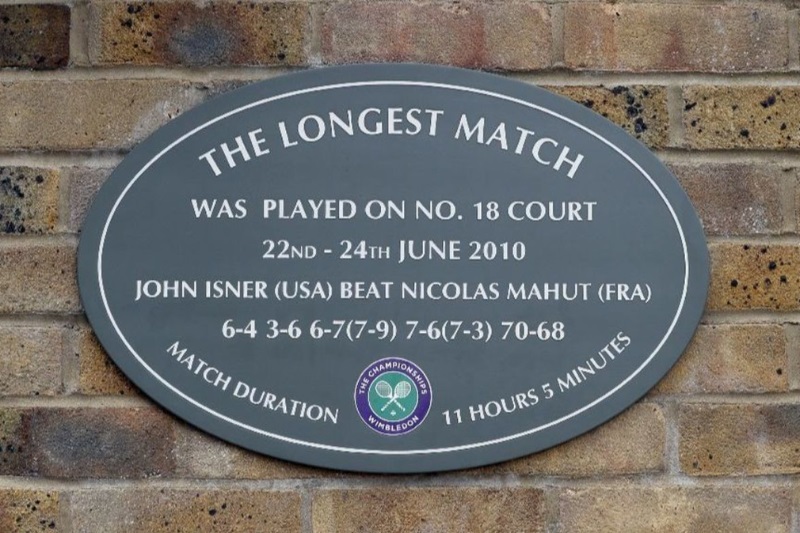- Sponsored -
Wimbledon to introduce final set tie-breakers from 2019

The All England club has announced that it will introduce final-set tiebreakers in all of its events for the first time next year after the scores reach 12-12 in the deciding set.
- Sponsored -
“Our view was that the time had come to introduce a tie-break method for matches that had not reached their natural conclusion at a reasonable point during the deciding set,” All England club’s chairman Philip Brook was quoted as saying by AFP.
Wimbledon thus is set to become the second tournament among the four Grand Slams to use a final-set tiebreaker to determine the outcome of a singles match in both the men’s and women’s category. US Open is the other major to use the tie-breaker. It, however, starts the tie-breaker at 6-6.
AELTC announces introduction of final set tie-break for The Championships 2019: https://t.co/r0uPDEABn5#Wimbledon pic.twitter.com/PHsgliAwTF
— Wimbledon (@Wimbledon) October 19, 2018
In a tie-breaker, the first player to get seven points – leading by at least by two points – wins the set.
The longest match in Wimbledon Tennis history is the match between John Isner and Nicolas Mahut in 2010. The match was lasted for more than 11 hours and was played over three days before Isner took the victory after an epic 70-68 final set.
Also Read: Youth Olympics silver medallist Thangjam Tababi Devi donates competition attire to IOC Museum
Many players have supported the move keeping in mind how difficult it gets as the game affects the player as well as the other matches on subsequent rounds.
“There were mixed views, it’s fair to say. But predominantly, players favoured the final-set tiebreak,” said Lewis, reports the news agency. “They recognize the quality of tennis goes down, players start playing not to lose rather than the excitement or the determination to win. And they recognize it affects the quality of the matches on subsequent rounds.”
Most recently, Kevin Anderson played two long five-set matches in space of three days at the Wimbledon 2018. His first, which he won, was the quarter-final against Roger Federer that went 13-11 in Anderson’s favour in the fifth set. Then in the semifinals, Aderson faced Isner and once was involved in a five-set long match. Anderson eventually won 26-24 after playing the second competition’s second longest match in its 41-year history.
At the same tournament, Novak Djokovic beat Rafael Nadal 10-8 in the fifth set to reach the final.
“While we know the instances of matches extending deep into the final set are rare, we feel that a tie-break at 12-12 strikes an equitable balance between allowing players ample opportunity to complete the match to advantage, while also providing certainty that the match will reach a conclusion in an acceptable timeframe,” added Brook.
Image Source: Los Angeles Times
- Sponsored -
